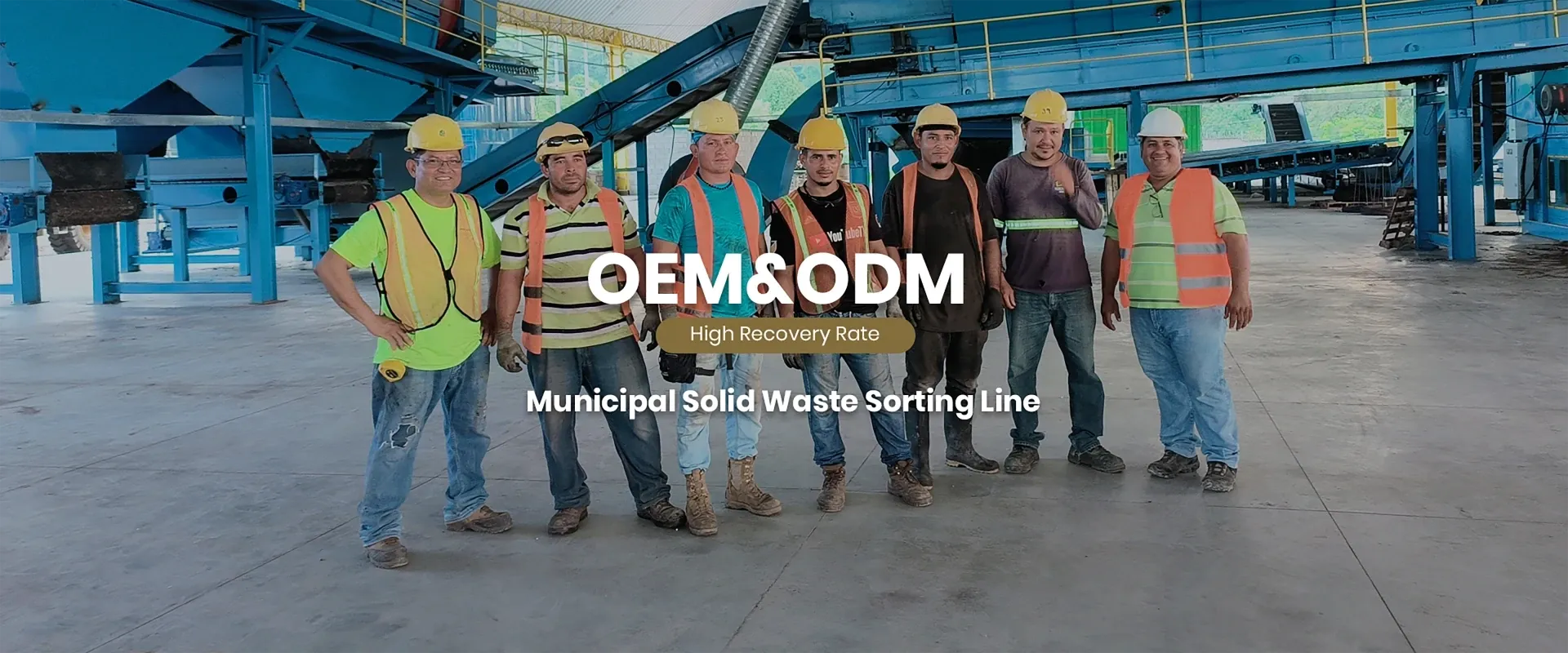

Ное . 21, 2024 22:24 Back to list
Understanding Ferrous Shredders An Essential Component in Metal Recycling
In today's world, where sustainability and resource efficiency are becoming increasingly critical, the role of metal recycling has garnered significant attention. Among the various technologies employed in this field, ferrous shredders stand out as an essential component in processing ferrous metals. This article aims to delve into the functions, benefits, and advancements associated with ferrous shredders, highlighting their importance in the metal recycling industry.
Ferrous shredders are specialized machines designed to break down ferrous metals, primarily iron and steel, into smaller, manageable pieces. These machines are commonly used in recycling facilities, scrap metal yards, and manufacturing plants to ensure that metals can be effectively processed for reuse. The shredding process not only reduces the size of the metal, making it easier to transport and handle but also prepares it for subsequent recycling processes.
One of the key advantages of ferrous shredders is their ability to recycle large quantities of metal rapidly. Traditional methods of processing scrap metal can be labor-intensive and time-consuming. In contrast, ferrous shredders streamline this process, allowing operators to process tons of material in a fraction of the time. This efficiency is particularly significant in today's fast-paced industrial environment, where operational speed and cost-effectiveness are paramount.
Additionally, ferrous shredders contribute to environmental sustainability. By facilitating the recycling of ferrous metals, these machines help reduce the need for virgin raw materials, minimizing the environmental impact associated with mining and processing new metals. When ferrous metals are recycled, they consume significantly less energy compared to producing new metals from ore. The U.S. Environmental Protection Agency (EPA) has reported that recycling steel saves enough energy to power around 18 million homes for a year, underscoring the environmental benefits of using ferrous shredders within the recycling chain.

Moreover, technological advancements have significantly improved the efficiency and effectiveness of ferrous shredders. Modern shredders are equipped with sophisticated control systems that allow for greater precision in processing. These systems can automatically adjust the shredder's speed and power based on the material being processed, optimizing performance and reducing wear on the machinery. Additionally, advancements in blade technology have enabled shredders to handle a wider variety of ferrous materials, including complex items like automobiles and industrial equipment, which contain mixed metals and require careful shredding.
Safety is another critical aspect associated with ferrous shredders. The recycling industry is often hazardous, with workers facing potential risks from heavy machinery and sharp metal fragments. Manufacturers of ferrous shredders have implemented various safety features to protect operators, including emergency stop buttons, adjustable safety guards, and operator training programs. These measures not only promote a safer working environment but also enhance the overall efficiency of the recycling process by minimizing downtime due to accidents or equipment failures.
The economic benefits of ferrous shredders cannot be overlooked. In addition to supporting environmental goals, the recycling of ferrous metals can be financially lucrative. Scrap metal is a valuable commodity, and efficient shredding operations can significantly enhance profit margins for recycling companies. As metal prices fluctuate, having the ability to quickly and efficiently process metal into sellable forms becomes critical for maintaining competitiveness in the market.
In conclusion, ferrous shredders play a vital role in the metal recycling landscape. They not only enhance operational efficiency and ensure effective processing of ferrous metals but also promote environmental sustainability and economic viability. As technology continues to advance, we can expect ferrous shredders to evolve, further solidifying their position as indispensable tools in the quest for a more sustainable future. As industries continue to prioritize recycling and resource efficiency, the importance of ferrous shredders will only grow, fostering a circular economy where materials are continuously reused, benefiting both the planet and the economy.
Latest news
Troubleshooting Common Eddy Separator Problems
NewsJul.04,2025
The Role of Metal Recycling Plants in Circular Economy
NewsJul.04,2025
The Impact of Recycling Line Pickers on Waste Management Costs
NewsJul.04,2025
Safety Features Every Metal Shredder Should Have
NewsJul.04,2025
How Industrial Shredders Improve Waste Management Systems
NewsJul.04,2025
How Cable Granulators Contribute to Sustainable Recycling
NewsJul.04,2025